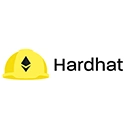A Hardhat project is a structured environment for developing, testing, and deploying Ethereum smart contracts and decentralized applications (dApps) using the Hardhat development framework. It includes all the necessary components, configurations, and tools that facilitate the development process.
Key Components of a Hardhat Project
A typical Hardhat project consists of several key components:
1. Project Structure
When you create a Hardhat project, it generates a specific directory structure that includes:
contracts/: This directory is where you store your Solidity smart contracts.scripts/: This folder contains JavaScript or TypeScript scripts for deploying contracts and performing other tasks.test/: This directory is for your test files, where you can write tests for your smart contracts.hardhat.config.js: This is the main configuration file for your Hardhat project, where you can set up networks, compilers, and plugins.artifacts/: This folder is generated after compilation and contains the compiled contract artifacts.
2. Initializing a Hardhat Project
To create a new Hardhat project, you can use the following command:
npx hardhatThis command will prompt you to select a project type, and you can choose to create a sample project or an empty one. Here’s how to initialize a basic Hardhat project:
npx hardhat init3. Writing Smart Contracts
Once the project is set up, you can start writing your smart contracts in the contracts/ directory. For example, you could create a simple contract called SimpleStorage.sol:
// SPDX-License-Identifier: MIT
pragma solidity ^0.8.0;
contract SimpleStorage {
uint256 private storedData;
function set(uint256 x) public {
storedData = x;
}
function get() public view returns (uint256) {
return storedData;
}
}4. Compiling Contracts
After writing your smart contracts, you can compile them using the following command:
npx hardhat compileThis command will compile all the contracts in the contracts/ directory and generate the necessary artifacts in the artifacts/ folder.
5. Writing Tests
Hardhat allows you to write tests for your smart contracts using JavaScript or TypeScript. You can create a test file in the test/ directory, for example, SimpleStorage.test.js:
const { expect } = require("chai");
const { ethers } = require("hardhat");
describe("SimpleStorage", function () {
it("Should return the correct stored value", async function () {
const SimpleStorage = await ethers.getContractFactory("SimpleStorage");
const simpleStorage = await SimpleStorage.deploy();
await simpleStorage.deployed();
await simpleStorage.set(42);
expect(await simpleStorage.get()).to.equal(42);
});
});6. Running Tests
To run your tests, use the following command:
npx hardhat testThis command will execute all the test files in the test/ directory and display the results in the console.
Conclusion
A Hardhat project provides a comprehensive framework for Ethereum development, encompassing everything from writing smart contracts to testing and deployment. By following the structured approach of a Hardhat project, developers can efficiently manage their dApp development process, ensuring that all components work seamlessly together.

